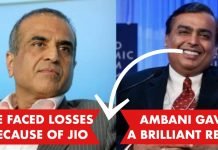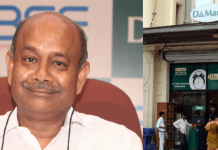Once in every lifetime, comes one personage who stays pure and benevolent in spite of the filth of the surroundings. And that person perhaps has the size to make the surroundings absolute- just like he or she is.
Malala Yousafzai is one such personage. Her story can possibly render the very true core of humanity and make one think of the reality we are living in.
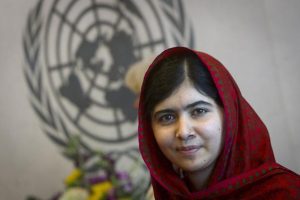
Malala was born on 12 July 1997 in the Swat District of Pakistan in a very lower-middle-class family to Ziauddin Yousafzai and Tor Pekai Yousafzai.
Her family is a Sunni Muslim family of Pashtun ethnicity.
The family was so poor that they barely had the money for affording a hospital birth. Yousafzai was delivered at home with the help of neighbors during labor.
She was named Malala after Malalai of Maiwand, a famous Pashtun poet and warrior woman from southern Afghanistan, which literally means- grief stricken.
As Malala grew up, she developed a knack for politics due to her growing despise for the terror-stricken surroundings and bloodshed violence that happened almost every other day.
She was greatly inspired by Muhammad Ali Jinnah and former Prime Minister Benazir Bhutto. As she reached her adolescence, Yousafzai started speaking about education rights. She was just ten years old when her father took her to Peshawar to speak at the local press club.
There she spoke-
How dare the Taliban take away my basic right to education?
And this question got viral in various newspapers and television channels throughout the region.
In late 2008, Aamer Ahmed Khan of the BBC Urdu website and his colleagues decided to cover Taliban’s growing influence in Swat.
To avoid life-endangerments, they determined to ask a schoolgirl to blog anonymously about her daily day life there.
They then connected to Ziauddin Yousafzai, Malala’s father to fetch them one volunteering candidate. But due to the attached vulnerabilities of lives and risks involved, no one really turned up. So finally, Ziauddin recommended his own girl, the 11-year-old Malala, for this dangerous yet ‘Nobel‘ task.
By the Malala started blogging, Taliban militants led by Maulana Fazlullah were taking over the Swat Valley. They were banning television, music, girls’ education, and women from walking openly on streets and even to shop. Bodies of beheaded policemen were being displayed openly in the town squares. Such was the filth between which Malala was about to rise and mark her inception as the harbringer of a worldwide revolution.
I had a terrible dream yesterday with military helicopters and the Taliban.
I have had such dreams since the launch of the military operation in Swat. My mother made me breakfast and I went off to school. I was afraid going to school because the Taliban had issued an edict banning all girls from attending schools.
Only 11 out of 27 pupils attended the class because the number decreased because of the Taliban’s edict. My three friends have shifted to Peshawar, Lahore and Rawalpindi with their families after this edict.
-Malala
We had been covering the violence and politics in Swat in detail but we didn’t know much about how ordinary people lived under the Taliban.
-Mirza Waheed, the former editor of BBC Urdu, said.
But due to her safety concern, BBC editors insisted that she use a pseudonym.
Her blog was published under the name “Gul Makai” a name taken from a Pashtun folktale.
On 3 January 2009, Yousafzai’s first entry was posted to the BBC Urdu blog. She would hand-write notes and then pass them on to a reporter who would scan and e-mail them.
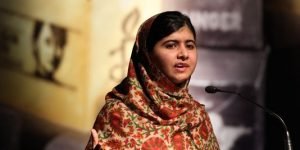
The blog records Yousafzai’s thoughts during the First Battle of Swat, as military operations take place, fewer girls show up to school, and finally, her school shuts down.
I had a terrible dream yesterday with military helicopters and the Taliban. I have had such dreams since the launch of the military operation in Swat. My mother made me breakfast and I went off to school. I was afraid going to school because the Taliban had issued an edict banning all girls from attending schools.
Only 11 out of 27 pupils attended the class because the number decreased because of the Taliban’s edict. My three friends have shifted to Peshawar, Lahore and Rawalpindi with their families after this edict.
-Malala Yousufzai
After the ban, the Taliban continued to destroy schools in that area.
Five days later in her blog, Yousafzai wrote that she was still studying for her exams:
Our annual exams are due after the vacations but this will only be possible if the Taliban allow girls to go to school. We were told to prepare certain chapters for the exam but I do not feel like studying.
It seems that it is only when dozens of schools have been destroyed and hundreds others closed down that the army thinks about protecting them. Had they conducted their operations here properly, this situation would not have arisen.
-Malala Yousufzai
In February 2009, girls’ schools were completely shut down. On 7 February, when the young Malal and her brother returned to their hometown of Mingora, where the streets were deserted, and there was an eerie silence.
She then wrote one of the most important lines of her blog, that marked her open rebellion with the ISIS:
We went to the supermarket to buy a gift for our mother but it was closed, whereas earlier it used to remain open till late. Many other shops were also closed. Their home had been robbed and their television was stolen.
-Malala Yousufzai
This simple yet extremely relavant excerpt went viral and as Yousafzai became widely recognised, the terrorist groups poised her a greater threat. It was only then, when death threats against her were openly published in newspapers and even fatwa notices were slipped under her door.
On Facebook, she began to receive threats and fake profiles were then created under her name to malify her brooding public image. When none of this worked, in a meeting held in the summer of 2012, Taliban leaders unanimously agreed to kill her.
I think of it often and imagine the scene clearly. Even if they come to kill me, I will tell them what they are trying to do is wrong, that education is our basic right.
-Malala Yousafzai
On 9 October 2012, a Taliban gunman suddenly hijacked and shot Malala, as she rode home on a bus after taking an exam in Pakistan’s Swat Valley.
The masked gunman shouted:
Which one of you is Malala? Speak up, otherwise I will shoot you all.
…and, on her being identified, pulled the trigger at her. She was hit with one bullet, which went straight through her head, neck, and ended in her shoulder.
After the shooting, Malala was instantly airlifted to a military hospital in Peshawar, where doctors operated after a swelling developed in the left portion of her brain, which had been damaged by the bullet when it passed through her head.
It took a long five-hour operation for doctors to successfully remove the bullet, which had deeply tugged near her spinal cord.
Later, to ensure no psycholoical hampering doctors performed a decompressive craniectomy, in which a part of her skull was removed to allow room for the brain to swell.
The murder attempt enraged the entire world with rage and outpouring sympathy. World media actively covered th whole news and protests against the shooting bursted out globally. A massive count of more than 2 million people signed the Right to Education campaign’s petition, which led to the ratification of the first Right to Education Bill in Pakistan.
Even Madonna dedicated her song “Human Nature” to Malala at a concert in Los Angeles in regards to the gruesome incident.
The pressure was so intense that the Pakistani government was forced to act against ISIS- just the day after the shooting, Pakistan’s Interior Minister Rehman Malik stated that the Taliban gunman who shot Yousafzai was called Atta Ullah Khan, a 23-year-old graduate student in chemistry who as of 2015 remained at large, possibly in Afghanistan.
The police arrested six more men for involvement in the attack, but they were later released for lack of strong evidences.
On 12 July 2013, the UN dubbed the day as “Malala Day” in account of her speech at the UN headquarters about education rights for all. The day also happened to be her 16th birthday.
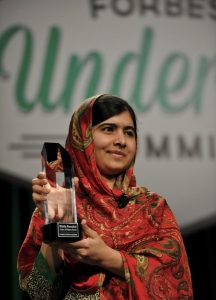
Malala day is not my day. Today is the day of every woman, every boy and every girl who have raised their voice for their rights.
-Malala
On 10 October 2014, the 17-year-old Malala Yousafzai became the youngest recipient of the 2014 Nobel Peace Prize for her struggle against the suppression of children and young people and for the right of all children to education, which she recieved alongside Kailash Sathyarthi from India.
And, that she celebrated at the place she always longed to be at- her school!

